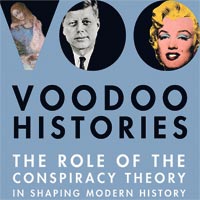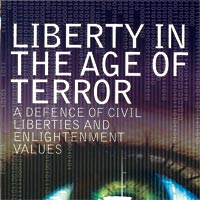Cheever: A Life
by Blake Bailey (Picador) 
The 700 densely packed pages of this large biography would hardly seem justified by John Cheever’s reputation as a writer today: as Bailey notes, his relatively slender oeuvre is little taught and sells in small quantities, whereas the fame he achieved in his lifetime is much faded. Cheever also had a spectacularly unhappy life. He was a self-hating homosexual who hid his true desires (revealing them only in the massive journal part-published after his death) and instead became an alcoholic of decades’ standing. It was only in his 60s that he dried out and partly “came out”. Until then he maintained the facade of a respectable New England gentleman, tweedy, dog-loving and devoted to a family whose lives in fact he made a constant misery. Amazingly, all this adds up to a very compelling read, with acute insight into Cheever’s work (the not-so-good novels are as important in this as his lauded stories) and a cool sympathy for his self-generated problems. When I picked up the book, daunted by its size and not being a particular Cheever fan, I thought I’d just browse and scan it, but I ended up reading it all. — Shaun de Waal
Voodoo Histories: The Role of the Conspiracy Theory in Shaping Modern History
by David Aaronovitch (Jonathan Cape) 
There is a direct line from that old anti-Semitic tract, The Protocols of the Elders of Zion, to the manifesto of the Palestinian liberation organisation Hamas, which quotes it uncritically. The fact that the Protocols were plagiarised and cobbled together from an anti-Napoleon satire and a cheap novel in the late 19th century, as detailed here by Aaronovitch, is either unknown or irrelevant to Hamas. So bogus history and contrived propaganda survive and, in a similar form, new conspiracy theories abound to offer alternative explanations for such events as the assassination of John F Kennedy and the attack on the World Trade Center in 2001. With wit and concision, Aaronovitch examines such theories and counts the unlikelihoods they contain, as well as trying to understand their appeal in an age when people consistently feel the truth is being denied them by their governments. Voodoo Histories is an entertaining and enlightening read. (And perhaps the reader might like to follow up with two accounts of real conspiracies that worked, which means they are no longer merely conspiracies but facts of life and power: The Secret History of the War on Cancer by Devra Davis, published by Basic Books, and The Tyranny of Oil by Antonia Juhasz, published by Harper. In a somewhat dilatory way, Davis shows how Big Tobacco sowed enough doubt about cancers caused by smoking to keep the truth out of public discourse for decades, whereas other industries used these lessons in dissimulation to keep selling hazardous substances such as asbestos. Juhasz’s more focused book is a hard-hitting report on how much of the world, and especially the United States, has been kept dependent on oil and petrochemicals, with dreadful consequences for democratic freedoms, peace and the environment.) — SdW
Liberty in the Age of Terror
by AC Grayling (Bloomsbury) 
AC Grayling is a leftish moral philosopher who has written extensively on the question, still urgent in the 21st century, that was first asked by the ancient Greeks: How does one live a good life? That is, a life both pleasant and morally responsible. Liberty in the Age of Terror is an extension of a previous Grayling book, Towards the Light, his excellent account of the growth of Enlightenment values (freedom, human rights, a humane state) in the West. Anyone who sneers at the smug “Eurocentric” belief in liberal democracy should read it and see what a long and painful walk to freedom that was. Grayling’s new book takes on the broad social and political issues of the post-9/11 world, asking how liberal democracies can preserve the values of the Enlightenment when they are in fact the best place to be a terrorist — as well as the target of terrorism. If you want to cause much terror in the name of your religion or other beliefs, you don’t stay in a country such as Saudi Arabia; you go to Europe or the United States, where freedom means the space to plot its destruction. This awful irony, Grayling argues, has to be dealt with head-on by Western countries, and not simply by legislation such as the US Patriot Act, which diminishes the citizen’s freedom and rights. The West has to give up some of its fabled liberalism, he says, if it is to preserve its core values. Liberty in the Age of Terror is a good read, and a good argument, but the paradoxes persist. — SdW